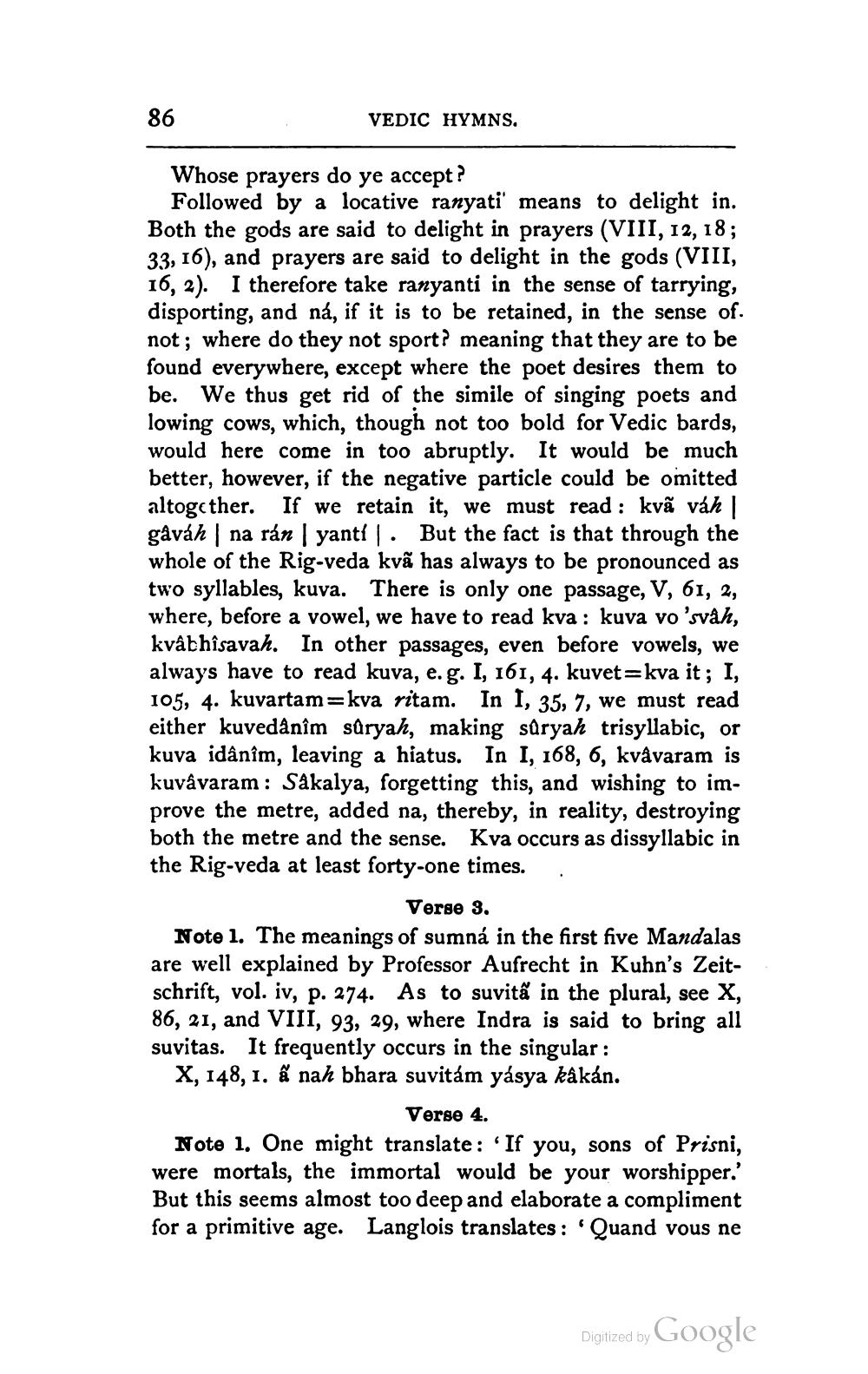________________
86
VEDIC HYMNS.
Whose prayers do ye accept?
Followed by a locative ranyati' means to delight in. Both the gods are said to delight in prayers (VIII, 12, 18; 33, 16), and prayers are said to delight in the gods (VIII, 16, 2). I therefore take ranyanti in the sense of tarrying, disporting, and ná, if it is to be retained, in the sense of. not; where do they not sport? meaning that they are to be found everywhere, except where the poet desires them to be. We thus get rid of the simile of singing poets and lowing cows, which, though not too bold for Vedic bards, would here come in too abruptly. It would be much better, however, if the negative particle could be omitted altogether. If we retain it, we must read : kvã váh | gåvah na rányanti |. But the fact is that through the whole of the Rig-veda kvã has always to be pronounced as two syllables, kuva. There is only one passage, V, 61, 2, where, before a vowel, we have to read kva : kuva vo 'svah, kvâbhîsavah. In other passages, even before vowels, we always have to read kuva, e. g. I, 161, 4. kuvet=kva it; 1, 105, 4. kuvartam=kva ritam. In I, 35, 7, we must read either kuvedanim sûryah, making sûryah trisyllabic, or kuva idânîm, leaving a hiatus. In I, 168, 6, kvåvaram is kuvâvaram : Sakalya, forgetting this, and wishing to improve the metre, added na, thereby, in reality, destroying both the metre and the sense. Kva occurs as dissyllabic in the Rig-veda at least forty-one times. .
Verse 3. Note 1. The meanings of sumná in the first five Mandalas are well explained by Professor Aufrecht in Kuhn's Zeitschrift, vol. iv, p. 274. As to suvitã in the plural, see X, 86, 21, and VIII, 93, 29, where Indra is said to bring all suvitas. It frequently occurs in the singular : X, 148, 1. ã nah bhara suvitám yásya kâkán.
Verse 4. Note 1. One might translate: 'If you, sons of Prisni, were mortals, the immortal would be your worshipper.' But this seems almost too deep and elaborate a compliment for a primitive age. Langlois translates : 'Quand vous ne
Digitized by
Digized by Google




